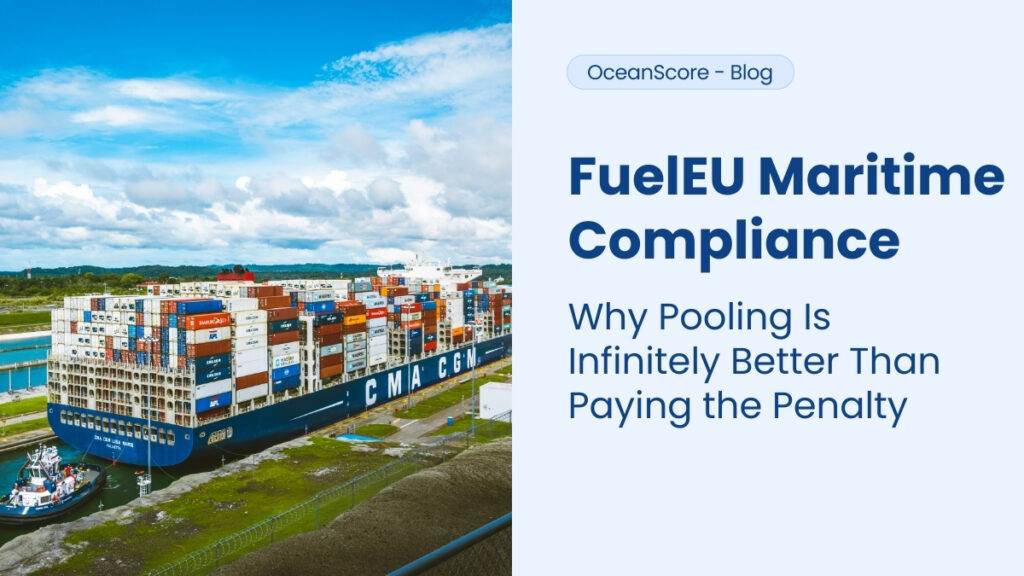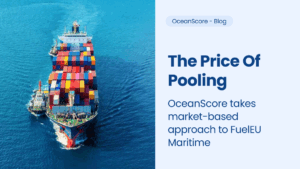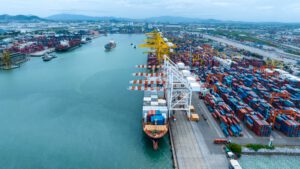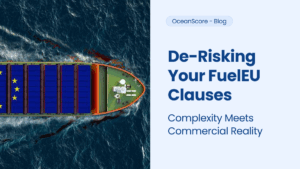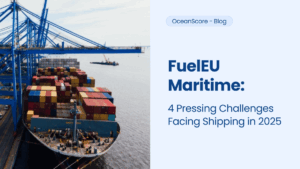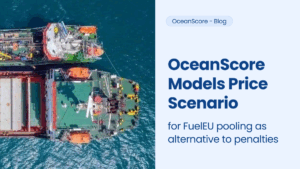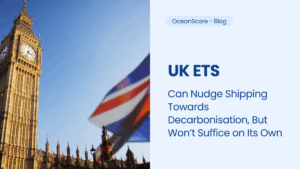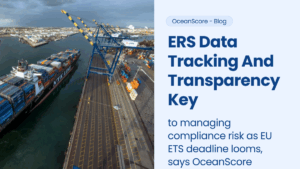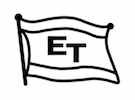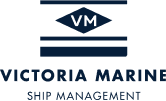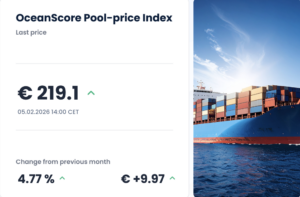Understanding the economics of FuelEU pooling vs. penalty payments (or switching to biofuels) for 2025
As FuelEU Maritime enters its first year of enforcement in 2025, shipping companies are grappling with a fundamental question: what’s the most cost-effective way to achieve compliance? With penalty rates set at €640 per tonne of CO₂ equivalent and biofuel premiums reaching record highs at the moment, an alternative strategy is gaining significant traction across the industry: FuelEU pooling.
The True Cost of FuelEU Non-Compliance
Many shipping companies are still calculating the real financial impact of FuelEU Maritime regulations. The numbers are stark:
Penalty rate: €640 per tonne CO₂ equivalent for non-compliance
Biofuel prices: Often 2-3x conventional fuel costs plus lower LCVs
Operational complexity: Sourcing challenges, technical risks, and change-over procedures
What Is FuelEU Pooling and Why Does It Matter?
FuelEU pooling allows shipping companies with compliance deficits to purchase surplus from companies that have exceeded their greenhouse gas intensity requirements. This mechanism creates a market-based solution that benefits both parties while supporting overall industry decarbonization goals.
Key Advantages of Pooling:
Cost Efficiency: Current pooling prices are running at less than one-third of the penalty rate, offering immediate savings of 60-70% compared to paying fines.
Operational Simplicity: No fuel sourcing challenges, no engine compatibility concerns, and no operational disruptions to vessel schedules.
Strategic Flexibility: Companies can bank excess credits, sell surpluses, or adjust their position during the April pooling window based on verified compliance balances.
Risk Management: Particularly valuable for ship managers (DOC holders) who carry compliance responsibility but may not control fuel purchasing decisions.
The April Compliance Window: Critical Decision Point
Understanding the FuelEU compliance timeline is essential for strategic planning:
31.December 2025: FuelEU reporting period closes
March 2026: Verified compliance balances become available on THETIS
1-30.April.2026: Official pooling window
30.April.2026: Final deadline for pooling transactions
This timeline creates a critical decision point in April when market visibility increases, surpluses and deficits can be accurately matched, and possible penalties are determined.
Market Transparency: The Missing Piece
One of the biggest challenges in the emerging FuelEU pooling market has been price transparency. Unlike established commodity markets, pooling transactions are based on bilateral negotiations with limited market visibility.
This creates challenges for shipping companies:
- Intransparency and higher costs– Without visibility on pooling prices, companies risk paying significantly more than necessary.
- No clear benchmark – Companies struggle to compare pooling prices against biofuels or use them in charter-party or SHIPMAN agreements.
- Operational efforts – Companies might not know where to find partners to buy or sell surplus
- The lack of transparent pricing creates challenges for strategic planning and budgeting, making it difficult for companies to accurately forecast compliance costs or compare pooling against alternative strategies like biofuel adoption.
Looking Ahead: Building a Sustainable Compliance Strategy
As FuelEU Maritime matures, successful companies will focus on strategies that balance cost efficiency, flexibility, and risk management. Pooling offers clear advantages:
Lower costs – Secure compliance at less than one-third of the penalty rate.
- Flexibility – Bank surplus for future years, resell excess, or top up deficits in April.
- Reduced risk – Avoid biofuel sourcing challenges, price spikes, and operational risks.
- Transparency – Use pooling prices as a benchmark for charter-party negotiations and long-term budgeting.
Efficiency – Manage compliance across the fleet through one marketplace instead of vessel-by-vessel arrangements.
The Importance of Competition and Market Transparency
A healthy FuelEU pooling market requires multiple participants, competitive pricing, and clear visibility into available options. Benefits of increased competition and transparency include:
- Lower costs through competitive pressure
- Better terms and contractual flexibility
- Price transparency that allows for informed decision-making
- Multiple providers of surplus, wide range of offers to pick from (volume, price, T&C)
With prices currently at relatively low levels, early participation can secure favorable rates. However, demand is expected to rise ahead of the April compliance window, which may push prices higher. Moving early not only reduces exposure to future price increases but also provides greater flexibility to bank or resell surplus credits later. In addition, surplus providers will not be able to generate more surplus once the December 31 deadline has passed.
Conclusion: Making Informed Compliance Decisions
FuelEU Maritime compliance represents one of the shipping industry’s most significant regulatory challenges and opportunities. While biofuels and alternative fuels will play crucial roles in long-term decarbonization, pooling offers an immediate, cost-effective solution for managing compliance requirements.
The key to success lies in understanding market dynamics, accessing competitive pricing, and maintaining strategic flexibility. OceanScore’s FuelEU Pooling Marketplace gives shipping companies access to multiple surplus providers, competitive offers, and true price transparency, all without transaction fees.
As the pooling market matures, companies that invest in market intelligence, transparent pricing mechanisms, and flexible compliance strategies will be best positioned to navigate the evolving regulatory landscape while maintaining operational efficiency and profitability.
Ready to secure competitive compliance costs with full transparency? Explore OceanScore’s FuelEU Pooling Marketplace today and learn more about available market opportunities.

